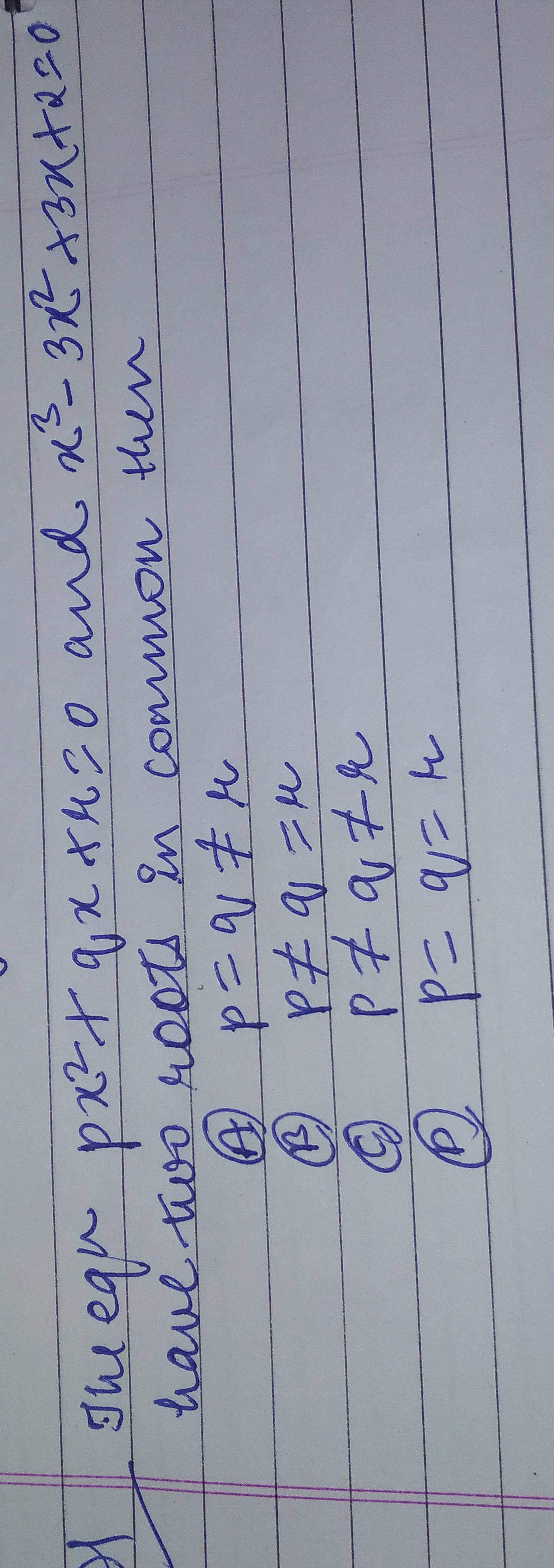Question
Question: The equ $px^2+qx+r=0$ and $x^3-3x^2+3x+2=0$ have two roots in common then...
The equ px2+qx+r=0 and x3−3x2+3x+2=0 have two roots in common then

p=q≠r
p≠q=r
p≠q≠r
p=q=r
p≠q≠r
Solution
The cubic equation is x3−3x2+3x+2=0. This can be written as (x−1)3+3=0, so (x−1)3=−3. The roots are x1=1−33, x2=1−33ω, and x3=1−33ω2, where ω is a complex cube root of unity. The quadratic px2+qx+r=0 has two roots in common. Assuming real coefficients for p,q,r, these common roots must be a complex conjugate pair. Thus, the roots are x2 and x3. The sum of these roots is x2+x3=2−33(ω+ω2)=2+33. The product of these roots is x2x3=1−33(ω+ω2)+3=4+33. The quadratic equation is proportional to x2−(2+33)x+(4+33)=0. So, p=k, q=−k(2+33), r=k(4+33) for some k=0. Since 33 is irrational, 2+33=−1, 4+33=1, and −(2+33)=4+33. Therefore, p=q, p=r, and q=r, which means p=q=r.
